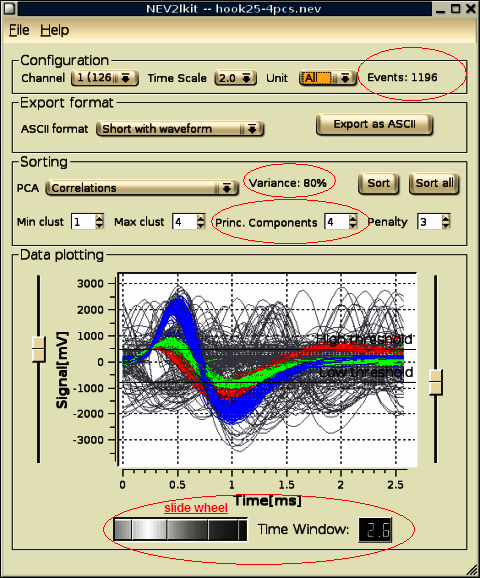-
20
Jan
A simulator-independent language for describing biologically detailed neuronal and network models.
A simulator-independent language for describing biologically detailed neuronal and network models.

Precompiled binaries are available for the following platforms:
Published annually, the Progress Report describes the top findings in brain research during the previous year as selected by executive members of the Dana Alliance for Brain Initiatives.

The gulf coast consortium in Theoretical and Computational Neuroscience (GCC-TCN) is a joint research/ training program of six Houston area Universities and Medical Schools. These include: Baylor College of Medicine, University of Houston, UTMB, UT Health Science Center, UT MD Anderson, and Rice University.
| M | T | W | T | F | S | S |
|---|---|---|---|---|---|---|
| « Jan | ||||||
| 1 | 2 | 3 | ||||
| 4 | 5 | 6 | 7 | 8 | 9 | 10 |
| 11 | 12 | 13 | 14 | 15 | 16 | 17 |
| 18 | 19 | 20 | 21 | 22 | 23 | 24 |
| 25 | 26 | 27 | 28 | 29 | 30 | |
Exoskeleton Retinal prosthesis human to human interface Connectomics Graph Theory neuroethics tCS CPG Biometrics Plasticity Trajectories systems-neuroscience music recommendation music neuroscience Deep Learning Interpretability Learnable Filters network neuroscience multiplexing Conferences music perception brain networks modularity community detection brain to brain interface transcranial direct current stimulation music Sparse neurons Noise Deep Brain Stimulation LFP Neural coding TMS Computational Neuroscience Brain-inspired Computing Neuroimaging Wavelets Neuro-inspired Computing neuroprosthetics Bionics Machine Learning neural recordings EEG Information Theory Dimensionality Reduction Modelling Neural Networks Clustering Statistical Analysis Neurophysiology Spike Sorting Brain Research Brain Interfaces
WP Cumulus Flash tag cloud by Roy Tanck requires Flash Player 9 or better.